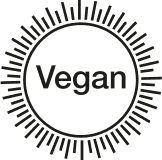Sustainability

Raise a Toast to Planet Earth
We set out to make sustainable beer that tastes amazing and does amazing things. That’s why we brew with surplus bread, transforming leftover loaves into liquid gold.
What’s more, 100% of our profits go to environmental charities so we can buy Mother Nature a round.
Our industrial food system is the biggest contributor to climate change and biodiversity loss, but one third of all food is wasted. Reducing food waste is the most important climate solution for reducing emissions (Project Drawdown, Scenario 1) and halving waste is a UN Sustainable Development Goal.
We brew with surplus loaves from bakeries and the heel ends from sandwich makers. The bread replaces about 25% of malted barley. Using a surplus ingredient not only prevents waste, but also means we need less malted barley, and so less of nature’s resources to produce it. Less land, less water and less energy, and as a result less carbon emissions.
Malt usually makes up 30-40% of beer’s carbon footprint. Of this, 60% is from growing the barley (mostly the production and use of nitrogen fertiliser) and 40% from malting and distribution (mostly energy for heat and airflow in the kilning process to dry the barley).
Now for the technical bit …
Our carbon footprint auditors use an emission factor of 0.487kgCO2e per 1 kg of malted barley. If surplus bread is given to us, we do not include the ‘embodied’ emissions (i.e. all the CO2 emitted to produce the bread) in our footprint.
However we are championing the circular economy by paying for surplus bread. By giving it economic value, we have to account for some of the embodied emissions. We’re using a method called economic allocation, which gives an average emission factor of 0.11kgCO2e/kg dried surplus breadcrumbs (our Companion(r) product).
Compared to malt, Companion(r) currently has less extraction efficiency (meaning we get less fermentable sugars for the same weight). So we use more Companion to get the same result. Once we adjust for this, the average emission factor is 0.19kgCO2e/kg Companion.
We source the remaining 75% malt from Crisp, most of whose barley growers in the UK are using regenerative agricultural practices. regeneratively grown barley. We are working to establish direct links with the farmers and maltsters so we can get a measure of the carbon footprint of the malt we purchase. As a small brewery, this has been challenging as we don’t have a lot of purchasing power and can’t buy ‘whole crop’ from farmers or meet the minimum volume requirements of malting companies. If you’re a brewery looking to do the same, get in touch and let’s do this together! In 2020 and 2021 we funded regenerative agriculture work with partner farmers to support the transition for all..
Hops are another key ingredient for brewing, and our Lagers are brewed with 100% UK-grown hops.
After brewing, our spent grain is collected by local farmers to be used for animal feed. They also collect spent hops to use for composting. All waste water from the brewing process is treated to ensure that the quality of water put back is greater than that taken out.
Our beers are brewed at Curious Brewery in Kent. We have always followed this contract-based approach to avoid the land and carbon footprint of building our own brewery (it’s also a way of us preventing the ‘waste’ of capacity for other brewers). This means emissions from the brewing process are classed as Scope 3 (ie emissions from sources that we don’t own or control).
We measure and report our full value chain carbon footprint every year (you can find all our past impact reports here). We invest in nature based solutions that will draw down equivalent emissions and enhance nature, working with our carbon auditors ClimatePartner. For 2022, we funded forest protection and afforestation work.
100% Profits to charity
We are legally committed (by our Articles of Association) to donating all our profits to charities, not shareholders. We ensure a minimum of 1% of revenue is invested in impact giving and investing.
Feedback is our main charity partner. We have also worked with Rainforest Trust UK, Soil Heroes Foundation and many food charities including FoodForAll.
Our Articles also set out our commitments as a B Corp: “to promote the success of the Company for the benefit of its members as a whole and, through its business and operations, to have a material positive impact on society and the environment.”. You’ll see we also have co-founder Tristram Stuart as our Golden Shareholder, with a remit to protect the mission of the company.
We also have an accompanying equity model called Equity for Good. It promotes investment in a greener economy, with shareholders committing to reinvest capital gains in organisations with an environmental mission, or for our corporate investors to invest them environment projects that will deliver additional positive impact.

Our impact

By using surplus bread to replace barley, we use less land, water and energy, and avoid carbon emissions.

By giving all profits to charity, not shareholders, we fund systemic change to fix the food system.
Impact Report
We set out to make beer that tastes amazing and does amazing things. That’s why we brew with surplus bread, transforming leftover loaves into liquid gold.
What’s more, 100% of our profits go the environmental charities so we can buy Mother Nature a round.
Custom logos
Collaboration beers

Get homebrew recipe
Join our home brewers club to download our bread beer recipe.

Food production is our biggest impact on the planet, but one-third of all food is wasted. Our food system is broken … but we can fix it.
Toast and Feedback have teamed up to put pressure on MPs to make sure fixing our food system is part of the UK's climate plans.












